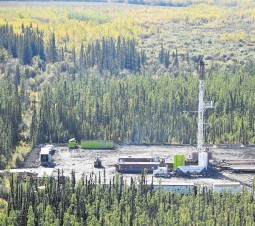
The US is now the global leader in the exploitation of shale-based hydrocarbon resources, fuelled by rising demand for natural gas and economic imperative, according to ExxonMobil.
Jack Williams, CEO of Exxon subsidiary XTO Energy, told a Philadelphia conference last month that, from an activity that scarcely existed 10 years ago, the industry now supports more than one million American jobs and generates billions of dollars in government revenues.
Expectation is that this fast-growing industry will employ 1.5million by 2015.
“Wherever we look, we see energy development creating multiplier effects that ripple through the US economy,” Williams said.
“The World Economic Forum estimated that oil and gas production accounted for 9% of all new US jobs last year. A significant part of that growth is coming from shale development.”
In Pennsylvania, Marcellus Shale development generated $11billion in value-added economic impact in 2010, while supporting 140,000 jobs and contributing $1billion in state and local tax revenue, according to Williams.
“Nationwide, shale gas development is expected to support 1.5 million jobs, and contribute nearly $200billion to GDP by 2015. Those benefits are expected to double by 2035,” he said.
“Industry, government – and a willing public – must take the right steps to ensure the United States remains a leader in shale development, so that US citizens and communities can enjoy the full economic benefits of this energy advancement.”
However, Williams warned that the industry must work to improve public confidence in shale development through transparency and education efforts to increase knowledge of industry standards and practices that protect water and air quality.
He added that policymakers can do their part to support the industry’s growth and development by maintaining a stable, transparent and fact-based regulatory environment that encourages investment.
And he pointed out that, because of the size of the shale gas resource, the US will be able to export liquefied natural gas (LNG), which will increase domestic benefits.
“Just as we do with exports of grain, cars and other American products, exporting LNG can create economic value that would not have existed otherwise,” Williams said.
“LNG exports could encourage increased domestic gas production, which would, in turn, support the creation of more American jobs.”
Recommended for you
